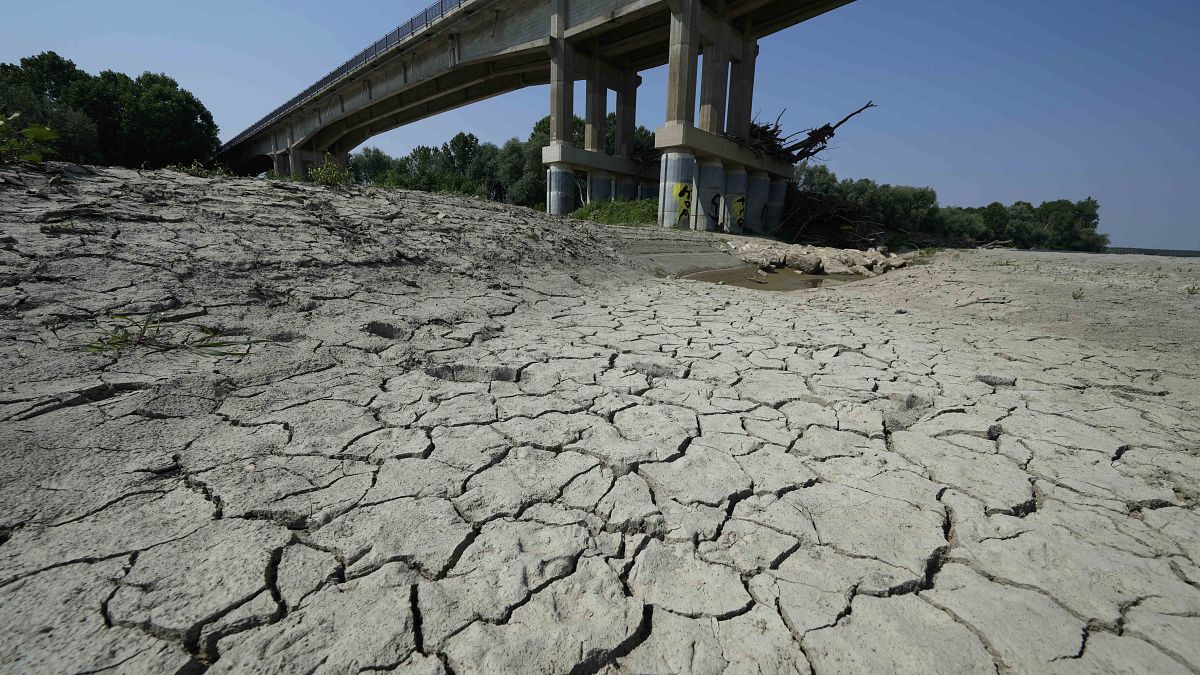"The Copernicus emergency management service indicates the present drought in Europe could become the worst ever," Commissioner Maroš Šefčovič warned on Thursday.
The European Union is bracing itself for a difficult wildfire season with hundreds of firefighters from different member states being deployed as the drought in southern European countries could become "the worst ever".
"Since 2017, we have witnessed the most intense forest fires ever seen in Europe and that we, unfortunately, expect the 2022 forest fire season could follow this trend," said Maroš Šefčovič, the European Commission's vice-president for inter-institutional relations, told lawmakers on Thursday.
"Similarly the Copernicus emergency management service indicates the present drought in Europe could become the worst ever," he added.
Climate change has increased the risk of fire, scientists say. Higher summer temperatures, coupled with the effects of more numerous and longer-lasting droughts make it easier for fires to spark and spread. The wildfire season itself has also become wider.
The EU and neighbouring countries were severely impacted in 2021 with a series of wildfires, fuelled by record-breaking heatwaves, devastating farms, fields, and forests across the Mediterranean, including in Turkey, Greece, Italy, France, Albania, North Macedonia, and Spain, Algeria and Tunisia in North Africa, and Middle Eastern countries such as Lebanon and Israel.
Some wildfires led to apocalyptic scenes, such as in Evia, where people were forced to flee the Greek island by boat in the dead of the night.
According to the European Organisation for the Exploitation of Meteorological Satellites, 2021 was the second-worst year ever recorded for forest fires in the Mediterranean, after 2017 and at least 86 people lost their lives.
Šefčovič said that to face these challenges "climate adaptation, disaster risk reduction and disaster preparedness are paramount" and that these efforts must include making ecosystems more biodiverse and resilient.
But he also told MEPs that to prepare, under the EU's "Civil Protection Mechanism this year, we financed by more than €14 million to support the RescEU fleet capacity with 10 Canadairs, 1 heavy helicopter and two air tractors.
"We are planning to purchase 12 additional aircraft under (the project) rescEU. When national capacities are overwhelmed, (this protection force) is ready to step in to provide additional support to confront disasters in Europe.
"This year, for the very first time in the EU's history, the Commission is financing the prepositioning of 204 firefighters and ground vehicles from Bulgaria, Finland, France, Germany, Norway and Romania to Greece during July and August. The first teams already arrived last week," he added.
Droughts are also increasingly a problem. The Italian government declared a state of emergency earlier this week in five regions because of a drought in the Po basin that has brought water reserves to their lowest levels in decades.
Nearly all of Portugal also faces "severe drought" after the hottest May in 92 years.
Šefčovič said when it comes to droughts the bloc has "the way how to respond in the short term, emergency measures through our EUCP (EU Civil protection) mechanisms and through our recently refurbished and upgraded EU wide early warning systems."
"And in the long run, what we need to do is to scale up better water use. In agriculture, we have to look at sustainable soil management and vegetation cover and we have to invest, as it was said by many, (in) drought resistant crops and restore damaged areas," he said.
